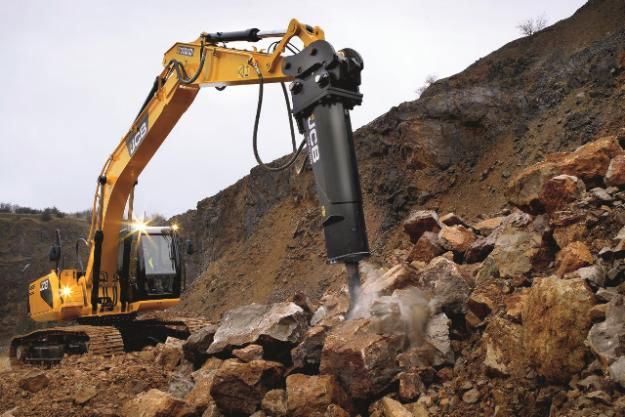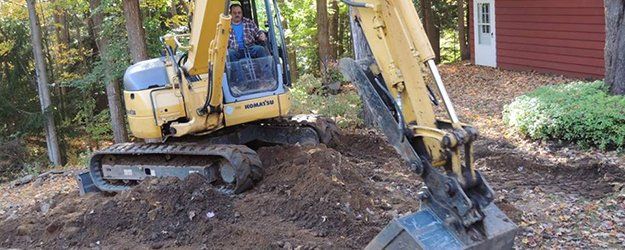Comprehensive Excavation Approaches: Mastering the Principles for Success
The cautious planning, accurate execution, and precise attention to detail required in excavation projects require a thorough strategy that incorporates different essential elements. The true mastery lies not just in recognizing these principles yet in effortlessly integrating them to navigate the complexities of excavation tasks with finesse.
Understanding Excavation Project Preparation

The first stage of any excavation job is the planning stage, where crucial decisions are made that can dramatically influence the result of the task. Recognizing the project budget plan, timeline, and range restraints is critical for creating an extensive excavation plan that guarantees the job's success.
One trick facet of excavation task preparation is the growth of a thorough timeline that lays out the series of tasks, landmarks, and target dates. This timeline serves as a roadmap for the project group, permitting them to track development and make required adjustments to ensure the project remains on schedule. Furthermore, a well-defined budget that makes up all costs, including equipment service, labor expenses, and materials, is important for avoiding price overruns and delays. By carefully considering all these aspects during the drawing board, excavation projects can be implemented effectively and efficiently, leading to effective outcomes.
Dirt Evaluation and Website Examination
Conducting comprehensive dirt analysis and site analysis is a vital action in the prep work phase of any type of excavation job. Dirt evaluation involves identifying the make-up, framework, and homes of the dirt at the excavation website. This details is crucial for comprehending the dirt's bearing capability, dampness web content, and potential for erosion, which are essential consider establishing the excavation methods and equipment needed for the project.
Site assessment surpasses soil analysis and includes a wider assessment of the general site conditions. This assessment includes determining any type of prospective risks, such as underground utilities, environmental concerns, or unstable surface, that can influence the excavation procedure. By completely evaluating the site, task supervisors can establish efficient excavation methods that prioritize safety, efficiency, and ecological defense.
Using sophisticated technologies like ground-penetrating radar, soil tasting, and drone studies can improve the accuracy and performance of dirt analysis and site evaluation. Investing time and sources in these initial steps can ultimately save time and prevent costly hold-ups or issues throughout the excavation procedure.
Tools Selection and Use
Efficient excavation jobs depend heavily on strategic devices selection and utilization to make sure ideal efficiency and efficiency. Selecting the appropriate devices for the job is critical in making the most of performance and lessening downtime. Factors such as the kind of soil, deepness of excavation, and project extent play a considerable role in establishing the most ideal devices for the job available.

Along with choosing the appropriate tools, proper use is key to project success. Operators must be trained to handle the equipment safely and efficiently - lancaster trenching. Routine maintenance checks and timely repair work help prevent breakdowns and ensure consistent efficiency throughout the task
Safety And Security Procedures and Laws Compliance
In the realm of excavation tasks, focusing on precaution navigate to this site and compliance with regulations is paramount to making certain a legally audio and safe operational atmosphere. Safety actions incorporate a variety of practices, consisting of carrying out extensive site analyses, executing proper signs and barriers, and giving appropriate safety training for all employees included in the excavation procedure. Adherence to guidelines, such as OSHA requirements in the USA, makes sure that the excavation project satisfies the necessary criteria to protect employees, bystanders, and the surrounding atmosphere.

Surveillance Progression and Adjusting Approaches
Just how can project supervisors effectively track the improvement of excavation tasks and adapt their approaches accordingly to enhance end results? Tracking progression is vital for making certain that excavation projects remain on track and fulfill deadlines.

Conclusion
In verdict, grasping the fundamentals of thorough excavation methods is vital for the success of any type of project. By recognizing job planning, assessing dirt and site problems, choosing appropriate tools, adhering to safety laws, click to investigate and checking progression, job managers can make certain a efficient and smooth excavation process. Implementing these methods will cause successful outcomes and decrease potential dangers or setbacks during the excavation task.
The initial phase of any kind of excavation job is the preparation stage, where essential decisions are made that can dramatically impact the result of the task. Understanding the job range, budget plan, and timeline constraints is important for developing a comprehensive excavation plan that ensures the task's success.
Just how can predict supervisors properly track the development of excavation jobs and adjust their approaches accordingly to optimize outcomes? By carefully keeping an eye on progression and being eager to adjust strategies, project managers can enhance the overall success of excavation projects.
By understanding project planning, evaluating soil and site problems, choosing proper tools, abiding with safety and security laws, and checking progression, task supervisors can make sure a smooth and effective excavation process.